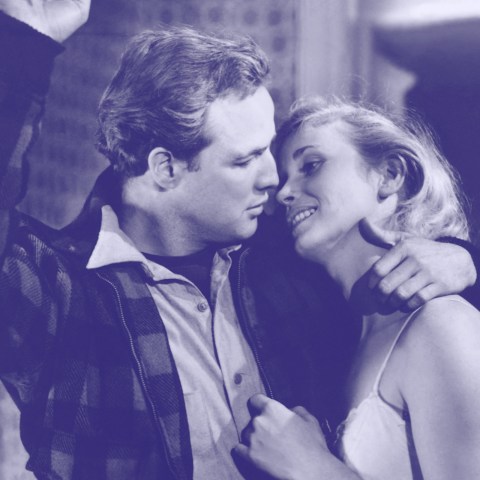A conversation with Matthew Lickona about transcendence, Mel Gibson, and Catholic fiction.There has been much talk of late regarding the state of Catholic fiction. Dana Gioia and Paul Elie find the landscape bleak; others like Greg Wolfe and Nick Ripatrazone have argued that, to alert readers, secularization in literature is little more than a myth. The conversation, which was kicked off by Elie last year with a New York Times essay has continued across a wide range of outlets, including the Wall Street Journal, First Things, The Millions, Everything That Rises, The Jesuit Post, and, of course, Dappled Things. Though at times the discussion has devolved into little more than compiling rival lists of authors, on the whole it has, naturally, been of tremendous interest to us, not so much out of a desire to see which side “wins,” but rather because it has been an opportunity to clarify what Catholic literature is, how it “works,” and, especially, to learn about contemporary authors who are working within the tradition to produce great art.
This last bit is essential. It’s so easy to get caught up in criticism—and that certainly has its place—but in the end what matters is whether willing readers can find a literature which speaks to questions of faith today in a way that feels credible and authentic. Such questions have become so privatized in the current culture that authors often find it difficult to even bring up the subject. Yet just as a godless humanism easily turns inhuman (think where all the talk about “transhumanism” comes from), art shuts out God to its detriment. When this dimension is lacking, the stakes a character faces can rarely be quite as high, quite as compelling, and there arises the literature of “wingless chickens,” as Flannery O’Connor might have put it. On the contrary, exploring this dimension within the universe of a story, bringing the readers into a world where meaning is not simply constructed butdiscovered, is one of the strengths that makes good Catholic literature so exhilarating.
With this in mind, it was a delight for me to discover Matthew Lickona’s Surfing With Mel, a quasi-fictional story written in the form of a movie script, which deals with Mel Gibson’s disastrous attempt to collaborate with scriptwriter Joe Eszterhas, a fellow Hollywood Catholic, in producing a movie about the Book of Maccabees. You may remember the headlines. Except that where the tabloids found only drunken anti-Semitic ratings, Lickona chose to look for meaning. What resulted is a heart-wrenching struggle between hope and despair in which the stakes for the souls of the main characters could hardly be higher. Now that the script has been rereleased as handmade, hardcover book from Labora Editions, we took the opportunity to talk with Mr. Lickona about this remarkable work.
Your book begins with an epigraph from John Cheever about modern celebrities: “We have a hierarchy of demigods and heroes; they are a vital part of our lives and they should be a vital part of our literature.” What role do you think celebrities have in modern life? What sort of demigod is the Mel Gibson of your fiction?
What Cheever said: they stock the cast of our mythology. Celebrities provide transcendence. They do what we do—get drunk, get sober, get pregnant, get married, get divorced, die—but since they’re special, it means more. They help us think about ourselves.
Gibson is a celebrity who is willing to talk about believing in God and trying to serve Him in spite of his own manifest weakness. He is the celebrity for believers.
That’s very insightful. It reminds me of the William Holden scene in The Moviegoer. Then again, celebrities often seem to serve as a sort of freak show for the culture at large, someone to look at and think “wow, at least I’m not like that.” I think that’s especially true when celebrities fall into scandals of the kind in which Gibson has been involved in recent years. That was perhaps my biggest worry when I heard about Surfing With Mel—that it would end up exploiting a famous man while he was down. Was this something that concerned you while you were writing? How did you deal with that challenge?
I wasn’t overly concerned, because most of what I read about Gibson in the public sphere was along the lines of “He’s a racist, sexist, anti-Semitic hatemonger.” Whatever the truth of any of those titles, he was labeled and thus disposed of. I thought that any effort I expended on rendering him as a character would be restorative of his humanity—which isn’t quite the same thing as rehabilitation, but isn’t exploitation, either. I think if I exploited anything, it was his celebrity, not him.
Many would see the real Gibson’s life in recent years as some sort of cautionary tale, but it doesn’t seem to me that that’s the kind of story you’re interested in telling here. I sense something almost pure behind the seemingly insane, offensive rants of your character, behind the meltdown we see him experience. What drew you to this story?
Gibson was a religious man who sought to make a piece of religious art, The Passion of the Christ, at considerable personal risk. The art succeeded—at least on some levels—but his life fell apart in the aftermath. That’s what started me paying attention. And then Joe Eszterhas’ letter to Mel leaked onto the Internet, spilling the details of their disastrous collaboration on the Maccabees movie. I wrote a blog post about it, and a reader commented, “Joe and Mel work on an Old Testament movie…THAT’S your movie right there. Sort of like The Odd Couple meets The Player.” A few hours later, I had my opening scene. What drew me? I share some of Mel’s weaknesses—certainly the struggle with wrath—and his ambitions and frustrations, on however modest a scale. No, it’s not a cautionary tale. It’s more of a tragedy, I think. I did want to try to drill down below what sounded offensive or insane and find the wellspring. I wanted to give Gibson a coherent worldview. Maybe that’s the purity you detected.
When you say Gibson, what do you mean? How did you draw the line between attempting to understand the real Gibson, and simply taking events in the real Gibson’s life as a starting point for the story of an entirely fictional character who happens to be called Mel Gibson?
I never imagined myself as attempting to understand the real Gibson. I just took the statements he had made (allegedly or otherwise) and thought, “How can all these statements and actions be woven back to create one recognizable character?” I would never claim to be representing the real Mel Gibson.
You seem to be drawing a parallel through your narrative between Mel’s story and the Book of Job. But how are Mel and Job different? Perhaps more importantly, when Job finally questions God, he receives in return a series of questions that led Chesterton to write that “the riddles of God are more satisfying than the solutions of man.” What does Mel receive?
Job’s wife tells him early on, “Curse God and die,” but Job never quite does that. He laments the day he was born, but he remains a righteous man. Mel says at the outset that “some of us just aren’t going to make it,” and over the course of the story, I think we see why that might be so. And when Mel finally confronts God, he’s asking questions a la Job, but he’s also hurling curses. And what he receives is a chance to defend himself on The Tonight Show.
Which is, in a sense, the saddest thing of all! Moving on, I don’t think I’ve ever read anything like the opening scene in this story: Mel smashing his private chapel with a baroque monstrance that is holding the Blessed Sacrament. As this happens we read the voice-over from Mel, describing the Catholic Church as rehab. “But eventually,” he says “you learn what I learned, what everyone in the recovery business learns if they’re not lying to themselves: some of us just aren’t going to make it.” How much of Mel’s idea of himself do you think comes from frank self-awareness, and how much from self-delusion? Do you think it is possible to pinpoint a fundamental “tragic flaw” in his character?
When Joe says that he’s crazy for trying to make a movie that will convince the Jews to accept their birthright, he answers, “Like a f*cking fox.” On the one hand, yeah, he’s probably crazy to think that he can make a movie that will do anything but offend the Jews. On the other hand, there are vibrations produced by the tensions that arise when you take faith seriously, and Gibson is sensitive to those vibrations. His tragic flaw isn’t especially original, I don’t think: he’s got hubris. What’s interesting, I hope, is how it plays out in a modern setting, and within his religious mentality. But even as I say all this, I start to think that I’m selling Gibson short, reducing him. I may not be the best judge of his character, or of this story. But it felt right when I was writing it.
One thing I love about Surfing with Mel is how seriously it takes the spiritual dimensions of human life and human history. Providence, sin, and redemption can be felt throughout as deeply urgent matters, and the characters for whom these are not burning questions seem somehow less real. What do you think is the relation between spiritual notions and realism in art?
I’m very glad that the writer isn’t necessarily called upon to make God a character. Rather, the writer makes people characters, and those people may experience spiritual notions as a powerful motivating force. More powerful, sometimes, than things like money or pleasure or power. The atheists may be right that faith is a mistake, but I think they’re wrong if they call it a stupid mistake. If it’s a mistake, it’s a fascinating one.
And yet isn’t that selling faith a little short? Because one thing I’ve noticed with regards to faith as a motivating power is that it creates some very odd situations—it doesn’t seem just one among many possible motivating forces. Unlike is the case with money, success, or what have you, the decisions people make and the lives they lead when faith is the fundamental principle can seem absurd, unintelligible—unless God exists. Like the Cross. I think part of the reason that the last scene at the Tonight Show is so tragic is precisely because there seems to be a trade in motivations to something a lot more mundane. As a result, though his character seems more sane, he is also greatly diminished.
I think that will especially be the case for someone who was once a believer.
It needs to be said: I doubt I’ve ever read a piece of fiction, or seen a movie for that matter—even an R-rated movie—that contained more f-bombs than Surfing with Mel. And yet the book is now being reissued by Labora Editions, which is an independent Catholic publisher. Some readers may consider such language beyond the pale for a Catholic writer, while others see such concerns as quaint or even backward. What’s your position on all this? Where is the morality in a piece of fiction, and does the language a writer employs relate to it?
I hate to punt by quoting others, but I’ll do it, because I don’t feel accomplished or experienced enough to speak definitely for myself. Walker Percy argued that “a good novel is like a good table. The parts have to fit; it has to work, that is, sit foursquare and at the right level. And it has to please. Its truth lies in the way it looks, feels, hefts—the touch and grain of the thing. Its morality follows from the form and excellence of the thing. That is to say, its morality comes from within, follows naturally from its making and is not imposed from without.”
I don’t think concerns about language are quaint. I think a writer can be brutal with language to the detriment of the work, the same way the writer can be salacious with sex or bloody-minded with violence. It is, alas, a matter of prudence, both for the writer and for the reader. It may be that I have erred. But I don’t think so. I think the language flowed from the characters—profane, worldly men who nonetheless took faith seriously.
I’m sure I’m not the only one that kept thinking as he read: Wow, this would make an awesome movie. I know you made some attempts at selling Surfing with Mel in Hollywood. Could you tell us a little about that process? Do you think there’s any chance we could one day see this on the big screen?
Ha ha! It’s more that I’ve made plans to try to sell it. Here’s the dream: Mel Gibson reads the story, and instead of forcing me to cease publication, realizes that it’s his chance for a cinematic comeback: playing an exaggerated version of himself, just like Gloria Swanson in Sunset Boulevard. Joss Whedon made a Shakespeare movie at his house. . . . But as I say, it’s a dream, that’s all.
Surfing with Mel is part of a proposed series titled “Lives of Famous Catholics.” Who else are you thinking of, and what do you mean, by “famous Catholics.” It doesn’t seem like you’re thinking saints and Popes exactly. Could you tell us about your future plans for this series?
No, not saints and popes. Rather, famous people whose lives bump up against the faith in some way. Volume Two is tentatively titled Gaga Confidential: Lady Gaga, Madonna and the Secret Show, with a Special Appearance by H.R. Giger. It might be fun to do something around the green room conversation before Stephen Colbert and Jack White of The White Stripes did theirCatholic Throwdown. There’s surely a story in the notion that raised-Catholic Katie Holmes’ parents wanted their grandchild Suri baptized—and oh yes, Tom Cruise is a lapsed Catholic himself. The list goes on. Catholicism has a way of showing up in odd places—even if it’s only in the background. The series struck me as maybe being a fruitful way to write about faith—by hooking into that celebrity transcendence.
Surfing With Mel was recently released again in a beautiful hand-printed, hardcover version by Labora Editions. How did this collaboration come about? What role do you think small presses like Labora Editions have in contemporary culture, especially a publisher of handmade books, in the age of smartphones and e-readers?
I believe a mutual acquaintance passed the e-book along to Ryan Charles Trusell, who runs Labora Editions. He’d had some success with his novel-in-letters, Ora et Labora et Zombies. The book struck a nerve with him, right as he was looking for something to publish that was not his own. God love him, he published it because he enjoyed it and wanted to see it as a physical book.
The handmade book in contemporary culture? Here’s my most optimistic take: you mentioned smartphones. A while back, I heard a story on NPR about the resurgence of the wristwatch. The industry had been devastated by the rise of the cellphone as timepiece, but here it was bouncing back. Or at least part of the industry: the ultra-premium timepieces. Nobody needs a Timex any more. But the premium watch is not about need; it’s about luxury. A handmade book is a similarly luxurious thing. I told Ryan I’d be willing to take the 99-cent e-book off the market in an effort to direct interested parties toward his creation. He politely demurred. You don’t need to spend $27 to read Surfing with Mel. It’s a luxury. I hope people will find it worth the expense.








